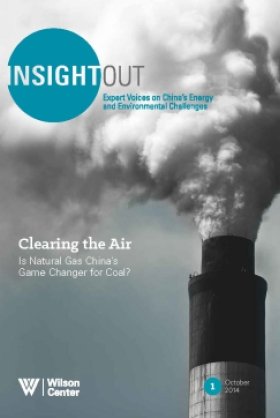InsightOut Issue 1 - Clearing the Air: Is Natural Gas China's Game Changer for Coal?



Managing Editor, Luan (Jonathan) Dong
Natural gas has emerged as a potential game changer on China’s path to reduce its reliance on coal and shift to cleaner energy sources. This shift, however, is bound to require costly investments, raise energy prices, and dampen economic competitiveness in the short term. Moreover, the government’s rapid and extensive expansion of new energy sources also can create new environmental and social challenges.
The China Environment Forum invited three experts—one from the United States, two from China—to discuss whether China will be able to achieve its monumental shift to natural gas.
Clearing the Air: Is Natural Gas China's Game Changer for Coal? is the first issue of CEF’s InsightOut series designed to tap on-the-ground expertise to understand the complex energy and environmental challenges facing China. As with much of our work, we cast an eye on opportunities for collaboration between American and Chinese researchers, business, NGOs, and governments.

China’s global footprint isn’t just an economic one, it’s an environmental one. From BRI investments in Africa and Asia to its growing presence in Latin America, understanding China’s motivations, who stands to gain - and who stands to lose - is critical to informing smart US foreign policy. Read more



